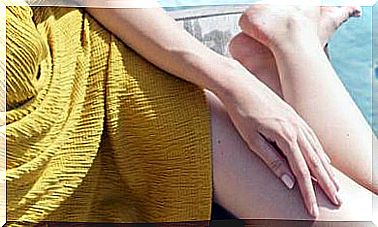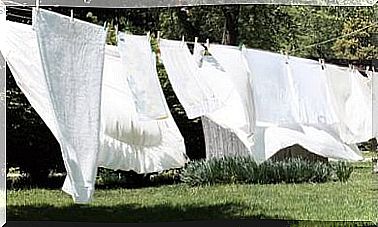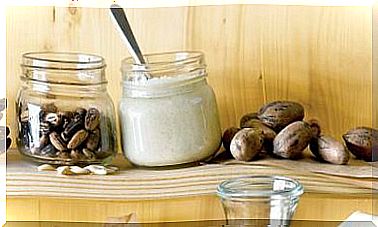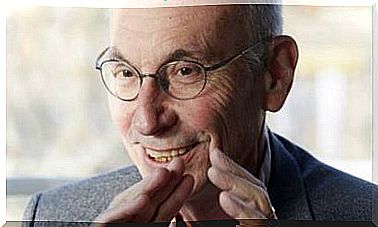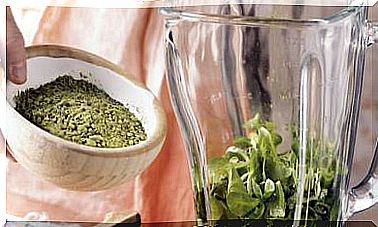“Being Sustainable Makes You Go Back To The Essence. It Makes You Happier.”
María Negro helps entrepreneurs convey the value behind their planet-friendly businesses. In his new book “Change the world” (Zenith) shows that citizens can also positively impact the environment through what we consume, the clothes we wear and even the garbage we produce.
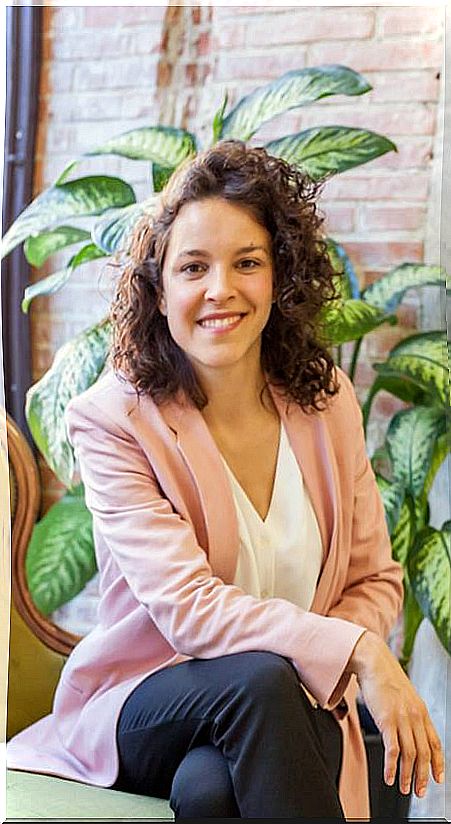
María Negro is a consultant in business communication that has a positive impact and has just published Change the world (Zenith), a book in which she reveals the 10 steps towards a sustainable life. Its purpose, in part, is to stir consciences.
“I try to facilitate the way for people so that they have tools, information, data and resources that allow them to incorporate into their lives new habits that are more conscious and respectful of the planet,” he explains.
–You want to show them what problems there are today and what can be done…
–And, above all, that they do it in a simple and practical way so that the process is truly transformative, because being sustainable refers to every aspect of the life, to each reflection, belief, habit, action … Only when you are aware of this do you begin to understand the magnitude of the word sustainability.
–Well, since you are talking about the meaning of the word sustainability, how would you define it?
–For me, being sustainable is living according to your beliefs and your values. It is being aligned with what you believe and feel, without compromising the planet, of course. And may that process finally make you feel at peace and offer you personal satisfaction.
– Do you think that the pandemic caused by Covid-19 will have consequences on the consumer system?
-Consequences will have insurance, since an economic crisis is looming and every crisis brings opportunities. Even so, and despite the serious and dramatic situation that we are experiencing, I believe that it can be a good breeding ground to rethink our way of living and consuming, to build through our habits a more friendly panorama with ourselves, with the planet and the living beings that inhabit it.
This situation gives us the opportunity to seek new formulas: greener and more livable cities (confinement has shown us that cities are designed for cars and buildings), minimize our environmental impact, direct our consumption towards a more responsible and thoughtful one than support sustainable brands and companies, reduce the waste we generate, avoid all disposable utensils and objects, reuse what we have, promote environmental education in schools, among many other things. Without a doubt, we are facing a blank page that we can rewrite.
– Are we forgetting to take care of? To ourselves, the relationships, the things…
-Yes, totally. Haste, stress, hoarding and superficiality are clear indications and diseases of this century, and I hope that this confinement has helped many people to realize it. Hopefully this break brings reflection and does not return us to the previous normality, which had little of “normal”.
This situation that we have experienced should serve to propose a new way of living and being in the world, because things are lasting less and less, there is less time to foster relationships, values are put aside …
Just to make a practical note: we buy 60% more garments each year and keep them half as long as 15 years ago.
This applies to everything, because it pushes us to continue immersed in that hamster wheel of buying, using and throwing away without thinking. This has to stop because, according to a study published last year by the World Wide Fund for Nature (WWF), we had already entered an ecological deficit in May. In other words, if we all lived like an average Spaniard, in the end we would consume the equivalent of 2.5 planets a year. We live beyond our means at all levels.
–In your book you say that being sustainable helps you to know yourself better. Could you explain this statement to us?
–Sustainability is one more process of self-knowledge. For example, if you only want to reduce the consumption of plastic, there is nothing else there, but if you scratch a bit on all spheres of life that being sustainable implies, there appear many inconsistencies, doubts, values …
What begins as certain scattered habits that you are changing in your life end up deepening, and this leads you to a transformation process that has no turning back. It reveals many things about yourself and makes you wonder why you need this or that thing to feel happy, what values you want to transmit to your family … It makes you wiser, be more informed and connected with nature, take care of the planet by taking better care of yourself to yourself. It makes you return to the essence, eliminating everything superfluous. It makes you happier.
In addition, sustainability helps a lot to empower yourself, because it makes you aware that as a citizen, as a consumer, you have a lot of power in your life. With your small gestures you can generate big changes and above all motivate people around you. That is very transformative and motivating. Living coherently and acting accordingly is very empowering.
“In your case, what did he show you about yourself that you didn’t know?”
–It has helped me to know myself better, to build myself as a person, to value what is important in my life and to build it around that. It made me see that many times I acted out of inertia, I bought things that I did not need just because I saw it on the Internet, I did not reflect on what I ate or what impact or footprint I was leaving on the planet. So when I became aware of all this it was a BOOM! and there was no turning back.
What makes me very happy is that what started out as something personal ended up becoming my way of life.
That interest that I had as a child (at that time I was already recycling my neighbors’ used oil so that they would not throw it down the drain, and at school and university I participated in projects related to social or environmental improvement) has ended up being my job, I am communication consultancy for sustainable businesses. I really enjoy sharing this experience and this knowledge, creating content, communicating, training and helping other people in the search of this path towards a more sustainable life.
– Do you remember what was your first step towards this philosophy of life?
–Well, as I have already explained, it all started when I was little, but in a more conscious way: stopping buying things that I did not need, giving or selling what I did not use, buying second-hand, exchanging and above all being very aware of what type of companies supported with my money. At the same time, I tried to minimize my garbage and avoid disposable items, including plastic.
– Where do you think the key to responsible consumption is?
–In reflecting and looking for information. Responsible consumption makes us realize that we have a responsibility as consumers, that our money is a vote and that we must begin to be aware of the impact that our actions have. That is why we must be more critical, investigate what is behind brands and companies and their practices … But, above all, we must reflect on whether we really need what we want or if we can achieve it in another way: by exchange, by second hand, loaned, rented …
For example, one of my most recent initiatives is called Consume con coco and is a showcase with more than 70 proposals from socially and environmentally responsible companies. This initiative was born with the spirit of supporting and giving visibility to the work of sustainable companies and brands, as well as to raise awareness about the importance of consuming wisely and living sustainably. It is also the way to unite these companies with responsible consumers, so that they know that there is a site where a filter has already been made by selecting sustainable companies.
–Although individual responsibility is very important, shouldn’t institutions and large companies be the first to become aware of caring for the planet?
Of course, the duty of institutions is to accelerate and facilitate change by promoting laws or measures that make this transition easier, faster and more durable. That they make people get involved and adopt more sustainable habits in a more massive way. Like companies, which must manufacture in a sustainable way, be transparent and ethical, inform consumers of their practices, use materials that are as respectful as possible with the environment …
But we cannot wait for the problem to be solved or for the solutions to come from outside. We forget that we have a lot of power as workers, consumers and citizens to contribute and lead change. Any global change begins with an individual one.
– Can you be competitive, commercially speaking, and sustainable?
It is very difficult to compete on price. The clearest example is that of fast fashion, since a sustainable company cannot compete with the € 3 t-shirt. But the issue is not whether it is more expensive to be sustainable, but why fast fashion is so cheap: because it exploits women and children to make the shirt, because it is made on the other side of the world, using unsustainable fabrics and in poor conditions. ethical, without respecting the planet …
It’s about not having a zillion 3-euro t-shirt, but maybe a few, that are sustainable, from responsible brands, that will last us longer. Because behind a cheap garment someone is paying dearly,
Of course, the consumer is becoming more informed and chooses more based on the brands that are consistent with their values. They are even willing to pay more to consume environmentally friendly products. People demand more transparency and companies must commit themselves, because otherwise consumers will stop supporting these types of products with our money, which is a great vote. If they don’t want to make the change, we will force them to do so.
–In today’s society, do you consider that Zero Waste is really possible?
– No, because we live in a linear system and we must go towards a circular one, that is why sometimes it is very difficult to completely avoid certain residues, no matter how hard we try. In any case, it is important that this type of label, zero waste or zero waste, does not paralyze us or make us try less, because the world does not need a few #zerowaste and #eco people doing everything perfect, but many imperfect people trying to be more respectful of the planet. Sustainability is a path, it is not a goal, that is why it is important not to stop, to keep taking steps and moving forward.
–It is clear that plastic is our great enemy and, nevertheless, it is everywhere, what can we do with it?
We have demonized plastic, it seems that it is the culprit of all evils, and the problem is not the material, but the use we give it. Plastic is a strong, cheap, lightweight and durable material that has allowed many advances throughout history. The problem is today this practically indestructible material is used and it takes years to degrade to make disposable containers and utensils that have a very short life, in some cases only a few minutes, such as plastic bags or drinking straws. This, logically, does not make any sense.
What we must do is try to get out of that system, because there are formulas: bet on buying in bulk, reject all single-use utensils both at home (in the kitchen, in the bathroom) and outside, bet on the use of durable and reusable alternatives, extend the life of what we have, repair, etc. This will greatly minimize our garbage and waste.

–Fashion is one of the sectors that generates the most waste. To make jeans, between 2,130 and 3,078 liters of water are used, and it is the star garment in almost all wardrobes, both for women and men. ¿Vivimos is a society of fashion victims ?
– Yes, I think so, but not so much about the concept of fashion (although there are many people who do), but about the cheap. And of course how everything is so cheap, what difference does it make if I don’t need it, if it breaks, if it comes from the other side of the world … But the consequences of this system are being suffered by all of us, that’s why we have to change the fast of the system for slow fashion, a system that is more respectful with the planet, with people … A system that promotes the circular economy, sustainable materials and fabrics, that saves on resources and avoids waste, more efficient, transparent and ethical, that supports durability , reuse and traceability.
We must bear in mind that when something is so cheap, someone and the planet are paying dearly for it. Price cannot be the only purchase criterion.
–You talk about buying unnecessary, but cheap clothes, and the groups of teenagers who come out loaded with bags from the textile multinationals created for them come to mind. How is that changed now?
– Just as important that you make changes in your life is that you transmit that information to a greater or lesser extent. And it is that all people are agents of change. Depending on how we are companies, influencers, institutions, families, governments, and the media, we will impact other people, so we can take advantage of that position to motivate other people to join in this change of consciousness.
Nowadays, the topic of influencers seems vital to me, and more so for teenagers. These people have a great community, they reach many people and they have the power to change their behavior, which represents a great responsibility. Therefore, they can use that position to transmit sustainable values, as well as collaborate with companies that respect the environment. They need to be informed, because that will allow them to bring these topics to their channels, where they have a large audience listening to them. For me it is vital that this information can get through.
– Food is totally linked to caring for the planet, don’t you think the important thing is to consume km0 and seasonal products?
Indeed, what is on our plate is also a way of being more sustainable, or not, and also in a very powerful way because we eat at least three times a day. In the end, there are three votes and that is why we must analyze well what foods we include and how we can minimize the impact. Of course, betting on km 0 and in season for a long time, but the environmental impact that the meat industry has is also very important. According to Greenpeace studies, more than 71% of agricultural land in the European Union (both those used for cultivation, as well as those used for grazing or forage production) is used to feed livestock. Therefore, more than 63% of arable land produces food for animals rather than for people. Just by reducing consumption, the glider would already notice a great improvement.
–What would you say to those who believe that their gestures will not change anything and that is why they are still within this wheel of throwing away?
– That if the millions of people who inhabit the planet thought the same, nobody would have done anything. No one believes that something is possible until someone takes the first step and does it.
When you embark on the adventure of sustainability, sometimes it is not easy. You feel frustrated, insecure, you think that you will not be able to change anything …, but you must not give up, because it is possible. People have a lot of power. Empower yourself in what you can do. Do not underestimate individual power. Talk to other people who are already on that path to find out how they feel, find out, read, because when you see the benefits of living sustainably, the satisfaction offered by knowing that you are contributing your grain of sand makes you motivate yourself and move on to the action.
–And who is considering reconciling their habits with caring for the planet?
– That he does not set great goals, that he start little by little, because in the end this is a path, where the goal is not so important, but not stopping on that journey. Take small steps, anchor them in your daily routines and from there, start with new ones. So until you take a tour of all spheres of your life. In the book I take a tour through those 10 steps through 10 spheres of your life linked to 10 actions that will generate a positive impact on the planet and in your life.
We have a lot of power, we are agents of change and through small gestures we can generate big changes.
If you have been interested in this interview …
You can buy María Negro’s book Change the world. 10 steps towards a sustainable life (Zenith) here.
